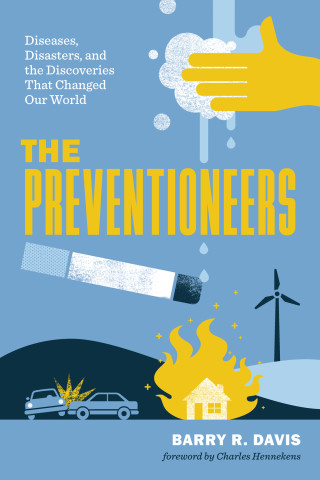
Reviews
The capstone to an illustrious career in academic medicine. Cooper's book offers surprising insights.
Offers helpful information for every American interested in improving the country's health care system. Recommended.
Passionately but meticulously argued.
An extremely important, brilliantly told story that, if understood by more people, would bring major changes to our health care system by improving medical care and reducing costs.
Cooper makes the centrally important argument that socioeconomic factors underlie high health care utilizations and costs, leaving people living in poverty vulnerable to poor health, high levels of hospitalization and readmission, and limited life prospects. Approaching the problem from multiple angles, this book is an important contribution to policy, scholarship, and the lives and livelihoods of Americans.
The great virtue of this compelling book about the problems of the American healthcare system is its relentless focus on one root cause that is external to that system: poverty and the unequal distribution of income and wealth. Throughout our history we see that the poor are likelier to be sick, the sick are likelier to be poor, and, without intervention, the poor inevitably grow sicker and the sick inevitably grow poorer. These truths distort healthcare access, costs, and quality. While others argue that poverty is not the only cause of our healthcare problems, Cooper argues that no solution that ignores poverty will work.
Cooper has laid out with strong science and impassioned eloquence the profound influence of poverty and its social consequences on the utilization of health care services. Every clinician will benefit from reading this book in order to provide—and advocate for—the scope of interventions necessary for effective care.
Experts say that there are two main problems with the American health care system: the care is ineffective and expensive, and not everyone has equal access to it. This important book breaks this logical contradiction. This intricate analysis shows that the problem is poverty, not inefficiency.
From a ride through New York's crazy quilt of neighborhoods, to a tour of Milwaukee's poverty corridor, to the skillful shredding of academic studies, Buz Cooper makes a compelling case that high health care costs and poverty are inextricably linked. Poverty and the Myths of Health Care Reform is both accessible and authoritative.
A highly sophisticated and powerful analysis of the relationship that exists between poverty and the aggregate cost of health care in this country, this book stands alone in explaining the relationship that exists between the level of poverty and the inexorable rise in health care costs. The book should be required reading.
Book Details
Preface
Acknowledgments
Introduction
1. Riding the A Train
2. Milwaukee
3. Los Angeles
4. Boston versus New Haven
5. Health Care Costs of Poverty
6. A Nation of Nations
7. Global Perspectives
8. States
9. The 30
Preface
Acknowledgments
Introduction
1. Riding the A Train
2. Milwaukee
3. Los Angeles
4. Boston versus New Haven
5. Health Care Costs of Poverty
6. A Nation of Nations
7. Global Perspectives
8. States
9. The 30% Solution
10. Solution #1
11. Solution #2
References
Index






